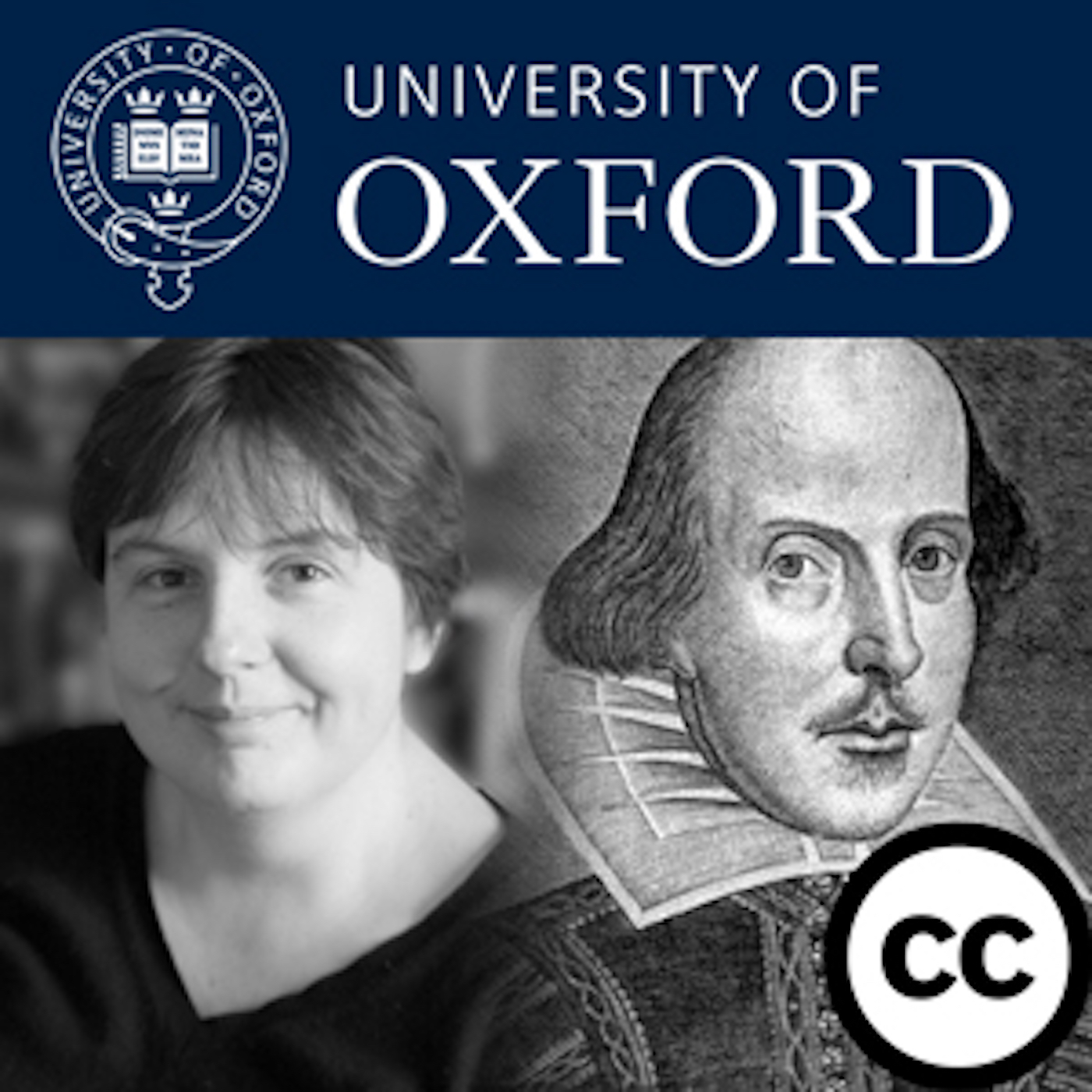Episodes
The fact that father and son share the same name in Hamlet is used to investigate the play's nostalgia, drawing on biographical criticism and the religious and political history of early modern England. Creative Commons Attribution-Non-Commercial-Share Alike 2.0 UK: England & Wales; http://creativecommons.org/licenses/by-nc-sa/2.0/uk/
Published 10/23/12
Asking 'what happens in As You Like It', this lecture considers the play's dramatic structure and its ambiguous use of pastoral, drawing on performance history, genre theory, and eco-critical approaches. Creative Commons Attribution-Non-Commercial-Share Alike 2.0 UK: England & Wales; http://creativecommons.org/licenses/by-nc-sa/2.0/uk/
Published 10/23/12
Showing how generations of critics - and Shakespeare himself - have rewritten the ending of King Lear, this sixteenth Approaching Shakespeare lecture engages with the question of tragedy and why it gives pleasure. Creative Commons Attribution-Non-Commercial-Share Alike 2.0 UK: England & Wales; http://creativecommons.org/licenses/by-nc-sa/2.0/uk/
Published 02/22/12
At the heart of King John is the death of his rival Arthur: this fifteenth lecture in the Approaching Shakespeare series looks at the ways history and legitimacy are complicated in this plotline. Creative Commons Attribution-Non-Commercial-Share Alike 2.0 UK: England & Wales; http://creativecommons.org/licenses/by-nc-sa/2.0/uk/
Published 02/10/12
Pericles has been on the margins of the Shakespearean canon: this fourteenth lecture in the Approaching Shakespeare series shows some of its self-conscious artistry and contemporary popularity. This podcast has been re-recorded due to technical problems with the original recording. There is no accompanying eBook for this lecture as Pericles is not included in the First Folio. Creative Commons Attribution-Non-Commercial-Share Alike 2.0 UK: England & Wales;...
Published 02/01/12
In this thirteenth lecture in the Approaching Shakespeare series the focus is on the inevitability of the ending of Richard III: does the play endorse Richmond's final victory? Creative Commons Attribution-Non-Commercial-Share Alike 2.0 UK: England & Wales; http://creativecommons.org/licenses/by-nc-sa/2.0/uk/
Published 01/25/12
Lecture 12 in the Approaching Shakespeare series asks how seriously we can take the farcical exploits of Comedy of Errors, drawing out the play's serious concerns with identity and selfhood. Creative Commons Attribution-Non-Commercial-Share Alike 2.0 UK: England & Wales; http://creativecommons.org/licenses/by-nc-sa/2.0/uk/
Published 01/23/12
Like generations of theatre-goers, this lecture concentrates on the (large) figure of Sir John Falstaff and investigates his role in Henry IV part 1. Lecture 11 in the Approaching Shakespeare series. Creative Commons Attribution-Non-Commercial-Share Alike 2.0 UK: England & Wales; http://creativecommons.org/licenses/by-nc-sa/2.0/uk/
Published 11/16/11
That the character of Prospero is a Shakespearean self-portrait is a common reading of The Tempest: this tenth Approaching Shakespeare lecture asks whether that is a useful reading of the play. Creative Commons Attribution-Non-Commercial-Share Alike 2.0 UK: England & Wales; http://creativecommons.org/licenses/by-nc-sa/2.0/uk/
Published 11/14/11
What kind of tragedy is this play, with its two central figures rather than a singular hero? The ninth lecture in the Approaching Shakespeare series tries to find out. Creative Commons Attribution-Non-Commercial-Share Alike 2.0 UK: England & Wales; http://creativecommons.org/licenses/by-nc-sa/2.0/uk/
Published 11/10/11
Lecture eight in the Approaching Shakespeare series asks the question that structures Richard II: does the play suggest Henry Bolingbroke's overthrow of the king was justified? Creative Commons Attribution-Non-Commercial-Share Alike 2.0 UK: England & Wales; http://creativecommons.org/licenses/by-nc-sa/2.0/uk/
Published 11/01/11
The seventh Approaching Shakespeare lecture takes a minor character in Twelfth Night - Antonio - and uses his presence to open up questions of sexuality, desire and the nature of romantic comedy. Creative Commons Attribution-Non-Commercial-Share Alike 2.0 UK: England & Wales; http://creativecommons.org/licenses/by-nc-sa/2.0/uk/
Published 10/20/11
Focusing in detail on one particular scene, and on critical responses to it, this sixth Approaching Shakespeare lecture on Titus Andronicus deals with violence, rhetoric, and the nature of dramatic sensationalism. Creative Commons Attribution-Non-Commercial-Share Alike 2.0 UK: England & Wales; http://creativecommons.org/licenses/by-nc-sa/2.0/uk/
Published 10/19/11
How we can make sense of a play that veers from tragedy to comedy and stretches credulity in its conclusion? That's the topic for this fifth Approaching Shakespeare lecture on The Winter's Tale. Creative Commons Attribution-Non-Commercial-Share Alike 2.0 UK: England & Wales; http://creativecommons.org/licenses/by-nc-sa/2.0/uk/
Published 11/09/10
In this fourth Approaching Shakespeare lecture the question is one of agency: who or what makes happen the things that happen in Macbeth? Creative Commons Attribution-Non-Commercial-Share Alike 2.0 UK: England & Wales; http://creativecommons.org/licenses/by-nc-sa/2.0/uk/
Published 11/02/10
The third Approaching Shakespeare lecture, on Measure for Measure, focuses on the vexed question of this uncomic comedy's genre. Creative Commons Attribution-Non-Commercial-Share Alike 2.0 UK: England & Wales; http://creativecommons.org/licenses/by-nc-sa/2.0/uk/
Published 10/26/10
The second lecture in the Approaching Shakespeare series looks at King Henry V, and asks whether his presentation in the play is entirely positive. Creative Commons Attribution-Non-Commercial-Share Alike 2.0 UK: England & Wales; http://creativecommons.org/licenses/by-nc-sa/2.0/uk/
Published 10/20/10
First in Emma Smith's Approaching Shakespeare lecture series; looking at the central question of race and its significance in the play. Creative Commons Attribution-Non-Commercial-Share Alike 2.0 UK: England & Wales; http://creativecommons.org/licenses/by-nc-sa/2.0/uk/
Published 10/18/10


